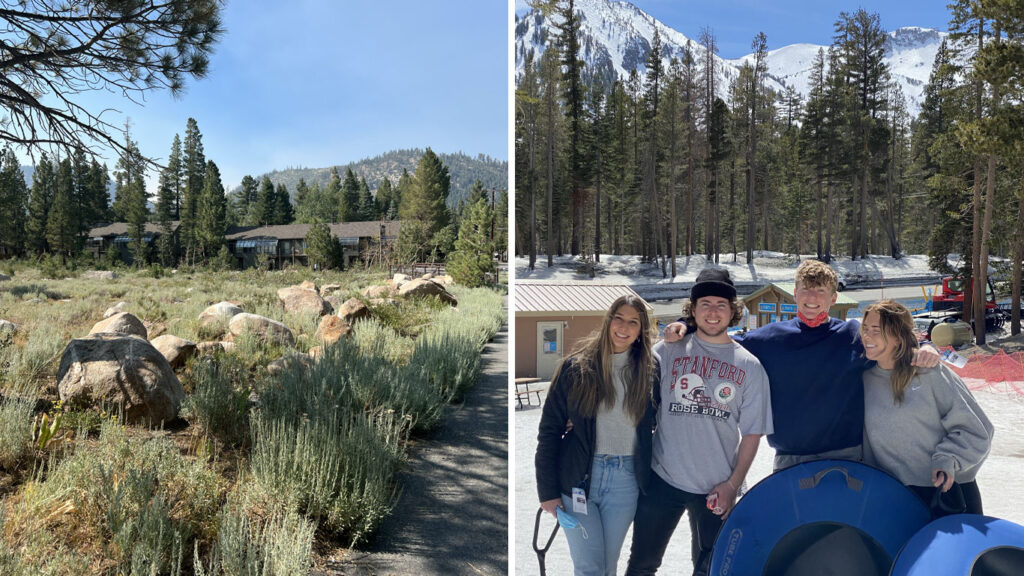Buying a home in Santa Clarita is an exciting journey, but navigating the closing process can feel overwhelming. You’ve found the perfect property, and now it’s time to seal the deal. Understanding the closing steps can save you time, money, and unnecessary stress.
The home closing process is a critical phase in buying a home in Santa Clarita. Grasping this process ensures you navigate it smoothly, minimizing potential issues.
What Is Closing?
Closing is the final component of the transaction for purchasing a residence. It involves you signing several necessary documents, transferring title from the seller to you, and making payments for expenses. A few necessary documents are the mortgage agreement, the deed, and the closing disclosure, which outlines the monetary elements of the transaction. You can expect to review and sign these documents during your meeting at closing.
Importance of Closing in the Home Buying Journey
Closing is essential to finalizing your buying of a home. It closes out your purchasing by making you a legal owner and protecting your financial investment. A successful closing ensures that everything is transferred properly, taxes are paid, and liens are removed from your property. A smooth closing may help prevent delays, reduce potential controversy, and provide you with a sense of relief as you enter homeownership.
With Holly Thompson, a trusted real estate agent guiding you through the process, you can feel secure knowing no detail is overlooked.
Preparing for Closing
Preparing to close requires assembling important documents and knowing your closing expenses. Being informed and educated makes a smooth entry into property ownership possible.
Gathering Necessary Documents
Gather several important documents before closing. You’ll need:
- Pre-approval letter: This demonstrates the lender’s commitment and your ability to borrow.
- Purchase agreement: This outlines the agreement between you and the seller.
- Identification: A photo ID confirms your identification when you close.
- Proof of homeowners insurance: This insures your investment and is commonly required by lenders.
- Financial statements: The last three pay stubs and the most current bank statements demonstrate your ability to finance closing costs and provide financial security.
Gathering these documents beforehand saves last-minute stress on closing day.
Understanding Closing Costs
Plan and budget for closing costs, which typically range from 2% to 5% of the residence’s cost. Typical closing costs are:
- Loan origination fees: Charges by the lender to process your loan request.
- Title insurance: Protects against title defects or claims of ownership.
- Appraisal fees: Charges for ascertaining the market value of the residence. The term used here refers to professional inspections of the site.
- Inspection fees: Charges for professional inspections of the property.
- Recording fees: Charges for officially registering the transaction with local authorities.
Verify your Closing Disclosure estimates provided on the Closing Disclosure. Using a real estate agent can give you clarity and ensure you understand everything on a line-by-line basis.
The Closing Day: What to Expect
On closing day, you face the last steps to owning your own place. Understanding what happens throughout the day makes you better-organized and at ease.
Final Walkthrough
There is a last walkthrough a few hours before you close. This is your opportunity to physically inspect the property and confirm that everything is as agreed upon. Check for any work that needs to be completed, ensure all appliances work, and check that no personal belongings remain behind by the seller. If an issue is identified on this walkthrough, let your real estate agent know early so these issues can be resolved before you close.
Meeting with the Closing Agent
Signing with the closing agent is one of the most crucial steps of your home-buying experience. This agent facilitates the closing transaction and ensures that all paperwork is accurately written and signed. In this meeting, you will need to sign a variety of documents, including the mortgage and deed. You would also have to supply your down payment and closing costs here. The closing agent would go through all these documents with you, clearing up any confusion. You would have to read and understand these documents because they finalize your title and financial obligations toward the property.
Moving In
It needs proper preparation and planning. Book your moving company or truck rentals well in advance. Create a checklist of essential items to pack, including clothing, kitchenware, and personal belongings. While you inspect your new place, check for items that could have been overlooked by the previous owner and verify that agreed-upon repair work has been performed.
It pays to have locks changed for better security and to transfer necessary utilities, such as electricity, gas, and water, into your name. Booking internet and cable connections in advance can help quicken your settling-in time.
Updating Records
Updation of Updating records is key to having current information on your new address. Please notify the post office of your address change so that your mail can be delivered. Notify banks, credit card companies, and insurers of your new address. If necessary, renew your voter and vehicle registrations to reflect your new address and comply with state requirements.
Check local legislation, as well, for mandatory adjustments regarding property taxes or homeowner’s association contracts. Staying current on your records confirms your rights as a property owner and ensures smoother transactions in the future.
Key Takeaways
- Understand the Closing Process: Closing is the final step in the home-buying journey, involving essential document signing and ownership transfer.
- Prepare Necessary Documents: Gather crucial documents, including the pre-approval letter, purchase agreement, identification, proof of homeowners insurance, and financial statements to streamline the closing process.
- Budget for Closing Costs: Expect closing costs to range from 2% to 5% of the home’s purchase price, covering fees like loan origination, title insurance, and appraisal costs.
- Conduct a Final Walkthrough: Inspect the property before closing to ensure it meets agreed conditions and address any issues immediately with your real estate agent.
- Trust the Closing Agent: The closing agent facilitates the process, ensuring all documents are correct and guiding you through final signatures and financial transactions.
- Update Records Post-Closing: After closing, promptly update your address with relevant institutions, change utilities to your name, and ensure all new homeowner records are accurate.
Conclusion
Selling your Santa Clarita home is a joyous achievement, and if done with a little bit of planning and a great Realtor on your side, it can be a smooth, headache-free endeavor. Holly Thompson aims to provide a fun, efficient process to all her clients, guiding you confidently through to the finish line and on to your next chapter.
Ready to make your next move? Take a look at Santa Clarita Listings to view available homes and schedule a free consultation with Holly. Your dream house awaits!
Frequently Asked Questions
What is the home-buying process in Santa Clarita?
The home buying process in Santa Clarita involves finding a property, making an offer, and navigating the closing process. Understanding each step helps buyers save time and avoid stress.
What are closing costs, and how much can I expect to pay?
Closing costs typically range from 2% to 5% of the home’s purchase price. They include fees for loan origination, title insurance, appraisal, and more.
What documents are needed for closing on a home?
Key documents include the mortgage agreement, deed, closing disclosure, pre-approval letter, purchase agreement, valid photo ID, proof of homeowners insurance, and financial statements.
Why is the closing process important?
Closing is crucial for transferring ownership and finalizing the purchase, ensuring legal protection for the buyer and financial security in their investment.
What should I do on closing day?
On closing day, perform a final walkthrough and meet with the closing agent. You’ll sign documents, pay closing costs, and finalize the purchase.
How do I prepare for moving into my new home?
Plan ahead by scheduling a moving company, creating a packing checklist, changing the locks, and updating utilities. Notify the post office and banks about your address change too.
How can I ensure a smooth closing experience?
Engage a real estate agent, review the Closing Disclosure carefully, and ask questions about each document to fully understand your obligations and costs.




